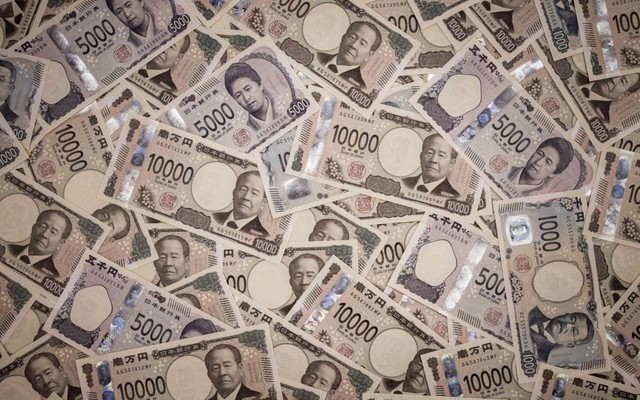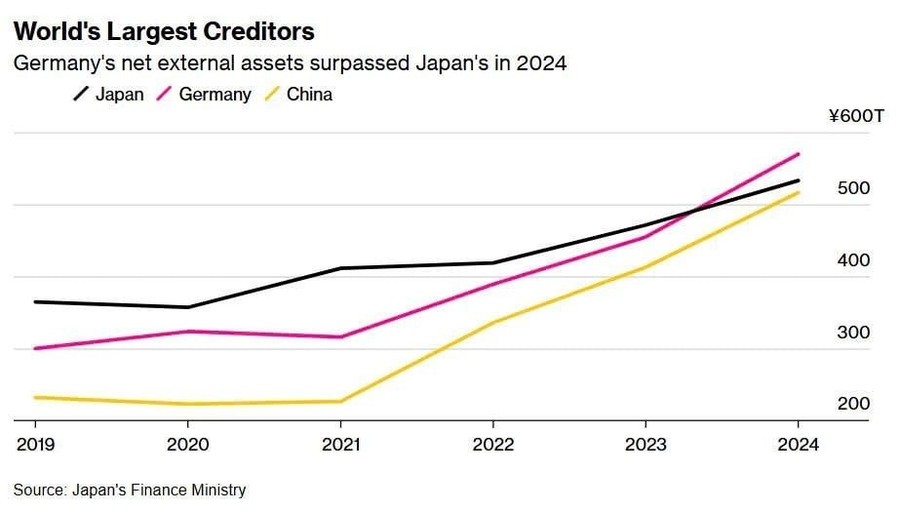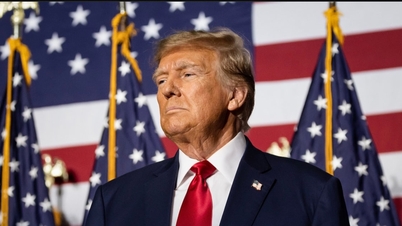
Germany rose to the top spot thanks to a large current account surplus, reaching €248.7 billion in 2024, largely driven by strong trade performance.
Meanwhile, according to data released by Japan's Ministry of Finance on May 27, Japan's total net overseas assets at the end of 2024 reached 533.05 trillion yen (approximately $3.7 trillion), an increase of about 13% from the previous year. However, the country officially lost its position as the world's largest creditor for the first time since 1991, despite its net overseas assets still rising to a record high, partly due to the weakening yen.

In terms of national rankings, Japan currently ranks second on the list of countries with the largest net foreign assets in the world , while China holds third place with 516.28 trillion yen.
In terms of net debt, the US continues to be the country with the highest net debt obligations, amounting to 4,109.26 trillion Yen, indicating that the scale of its foreign debt is much larger than the amount of international assets it holds.
Losing its position as the world's number one creditor is not only symbolic but also reflects fundamental changes in the global financial structure that Japan needs to respond to cautiously.
However, Japan's Finance Minister, Katsunobu Kato, appeared unconcerned about this change:
"Japan's net overseas assets are still steadily increasing, and the ranking alone should not be seen as an indication that Japan's position has changed significantly."
According to Daisuke Karakama, chief market economist at Mizuho Bank, Japan's increasing shift toward direct investments rather than foreign securities makes it more difficult to quickly withdraw capital when risks arise.
In the coming period, the direction of Japan's outbound investment will largely depend on whether businesses continue to expand their spending overseas, especially in the United States.
With President Donald Trump's tax policies taking effect, some companies may consider shifting production or assets to the United States to mitigate trade-related risks.
Source: https://baogialai.com.vn/quoc-gia-nao-dang-la-chu-no-lon-nhat-the-gioi-post325173.html









































































































Comment (0)